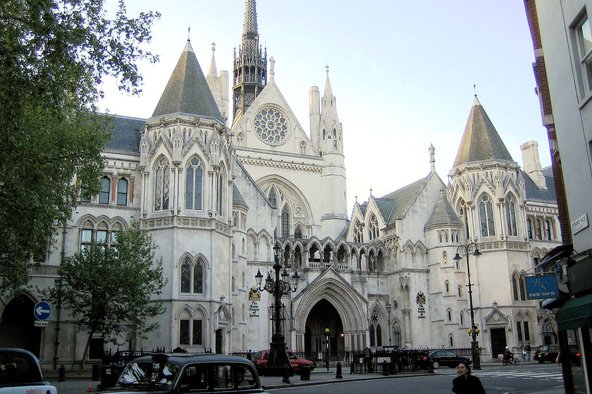Three key issues about the Parole Board raised by the Worboys case
by HH Jeremy Roberts QC
26 Feb 2018
Following the decision of a panel of the Parole Board to direct the release on licence of Mr John Worboys – the London cab driver convicted of serious sexual offences against female passengers – interest in the Board and its decisions has soared.

I was asked a few months ago to say something at the 'Challenges to Judicial Independence in Times of Crisis' conference about the Parole Board's role as an independent judicial tribunal. At that time few people would have anticipated that by the time of the conference the Board would have been at the centre of so much media and political interest.
As it happens, in the week after the conference the High Court will be considering applications by two of Mr Worboys' victims and the Mayor of London for judicial review of the Board's decision. I obviously can't say much about the facts of Mr Worboys' case, not least because I don't know much about them. The confidentiality which we're required by the current rules to observe means that I haven't seen the decision or spoken to the members of the panel which made the decision.
But there are three general issues arising out of the Worboys case about which I can say a few words, and which we can perhaps discuss at the conference.
1. Who should make decisions about parole?
To my mind, and I hope others will agree, it is important that decisions like this (affecting, as they do, the liberty of the subject) should be made by an independent judicial tribunal, which the Parole Board now is, and not by a politician, who - with the best will in the world - would find it very difficult to avoid being influenced by the prospect of being vilified in some sections of the media if he or she makes a deeply unpopular decision.
The Parole Board hasn't always been an independent judicial tribunal. It started life in 1968 as a purely advisory body, advising the Home Secretary (then the relevant Secretary of State) on matters of parole. The Home Secretary was not obliged to follow the Board's advice, and sometimes didn't.
A series of decisions by the European Court of Human Rights established that our then parole system was incompatible with Article 5(4) of the European Convention and that parole decisions should be made by a “court”. To qualify as a “court”, within the meaning of Article 5(4), the decision-making body needed to be independent of the executive and of the parties, and to have in place an appropriate set of judicial procedures to ensure fairness.

"Building of the European Court of Human Rights" by CherryX is licensed under CC BY-SA 3.0
The result of those decisions was that Parliament legislated to transform the Parole Board into a judicial tribunal whose decisions are binding on the Secretary of State (now the Secretary of State for Justice, who has taken over the criminal justice responsibilities of the Home Secretary).
'To qualify as a “court”, within the meaning of Article 5(4), the decision-making body needed to be independent of the executive and of the parties, and to have in place an appropriate set of judicial procedures to ensure fairness.'
2. Should there be greater transparency in the Board's hearings and decisions?
One of the grounds for the judicial review application is that the parole system is unlawful because parole hearings and decisions are private and confidential and not open to public scrutiny; and a review is currently being carried out by the Ministry of Justice to see how the rules (which are made by ministers) might be amended to allow for greater transparency. There are reasonable arguments, which will no doubt be considered by the High Court and by the review, for and against the principle of confidentiality which has thus far prevailed.
Many if not all of us who are members of the Parole Board (including our present Chairman) would for some time have liked to see greater transparency. Secrecy is a breeding ground for misconceived criticisms, and we would have liked the Board to be able to disclose at least summaries of the reasons for its decisions. Various proposals have been put forward, and the conference may provide an opportunity for an exchange of views about those.
3. Should there be a new procedure for challenging decisions of the Board?
At present there are two available routes by which a decision may be challenged: (a) an application to the High Court for judicial review, as in the Worboys case, and (b) a request by the Secretary of State (or, in principle, by the offender) that the Board should reopen its review of the case in the light of new evidence which has only come to light after the Board's decision.

"Royal Courts of Justice" by Anthony Majanlahti is licensed under CC BY 2.0
Are these procedures sufficient, or should there be any, and if so what, further route? Is there an advantage, as argued by Matthew Parris in an article in the Spectator, in finality in matters of this kind? There will be an opportunity to discuss these questions, too, at the conference.
His Honour Jeremy Roberts QC was formerly a judge at the Central Criminal Court. He is a member of the Parole Board and a Master of the Bench at the Honourable Society of the Inner Temple.
HH Jeremy Roberts QC spoke at the British Academy conference, ‘Challenges to Judicial Independence in Times of Crisis’ on Thursday 8 and Friday 9 March.
The views expressed by our authors on the British Academy blog are not necessarily endorsed by Academy but are commended as contributing to public debate.
Image credits:
istock.com/Nikada


